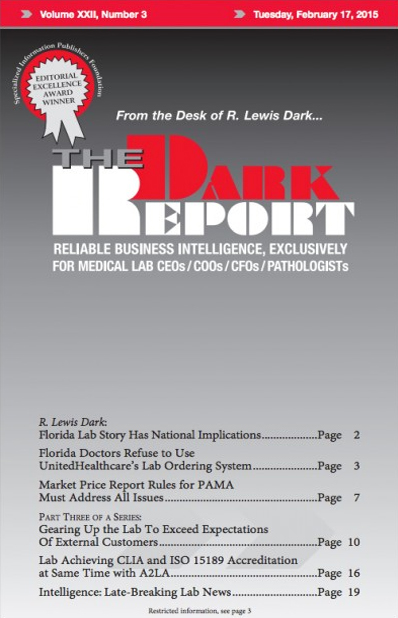CEO SUMMARY: It may not yet be open rebellion, but UnitedHealthcare faces strong opposition in Florida from physicians- and their medical societies-over the requirement that they obtain prenotification and pre-authorization when ordering tests listed in UHC’s laboratory benefit management program. Recent rumors say that UHC has exempted some medical groups from compliance with the program. If true, that could further complicate UHC’s relationship with physicians in the Sunshine State who must continue to comply with this program.
To access this post, you must purchase The Dark Report.


